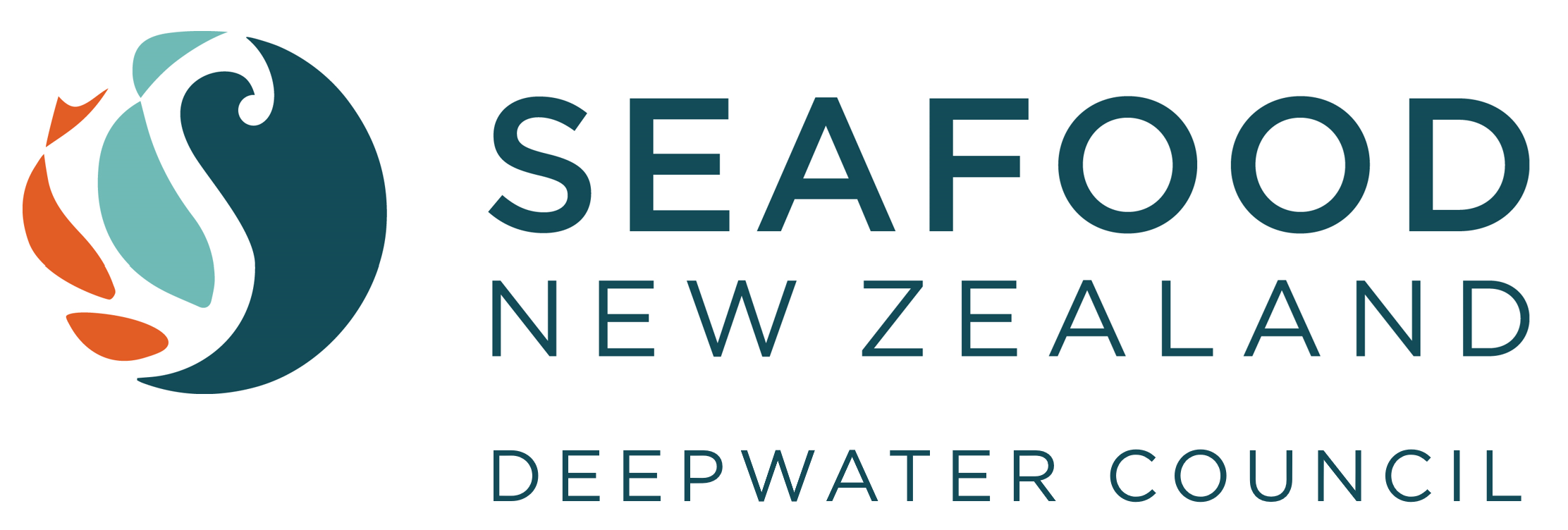About: Deepwater Group
Recent Posts by Deepwater Group
Health Concerns Over Phosphate Mining Project
Risk to No-Nuke Status Alleged
Seafood Industry Claims Uranium Threat
New Zealand Seafood Industry Assures Australian Consumers that its Seafood is Sustainable
Deepwater Confident of Meeting Ling Fisheries Conditions
Minister Commends Conservation Teamwork
Seafood Industry and Conservation Groups to Protect Seabirds
Fisheries Fight ‘Strip Mining’ Bid
Seafood Industry Strongly Opposed to CRP Mining Application
DWG opposes Chatham Rock Phosphate Mining Application
Seeing What Lies Beneath: Skippers Can See Into The Depths
New Zealand Seafood Industry Welcomes EPA
Hilborn Tells Ocean Summit Alaska and NZ Have Never Had ‘Overfishing Pressure’ Under Modern Mgt
Fishers Urged to Help Keep Seabirds Safe
Washington Ocean Summit Told Of New Zealand’s Sustainable Fishing
Seafood Industry ‘Needs a Touch-Up’
Push for Hake to Gain Standard
$16m export fish gets top sustainability marks
MSC welcomes New Zealand orange roughy’s brave move to enter assessment
Call for seabed ‘legal anomalies’ to be resolved
Mine bid ‘a risk to ecology’
Five things you need to know about New Zealand Seafood Sustainability
Evidence that SLEDs save Sea lions

Southern blue whiting fish stocks in good health
Seafood industry looks forward to disease action from NZ sea lion threat management plan
Deepwater Group supports sub-Antarctic marine reserves
Squid fishery decision reflects new research
Eighty per cent of deepwater catch to be in global sustainability scheme
Search for sea lion answers continues
The reason for the decline of the sea lion pup population on the Auckland Islands needs to be identified before a solution can be found, the New Zealand seafood industry says.
The Deepwater Group has welcomed the Minister for Primary Industries, David Carter’s statement today recognising squid fishing is not responsible for the sea lion population decline.
The Deepwater Group chief executive George Clement says the seafood industry fully backs the management measures in the squid fishery to protect sea lions from harm and the research to protect an important part of New Zealand’s unique biodiversity in the Southern Ocean.
“We support the Minister’s call for the Ministry for Primary Industries and the Department of Conservation to gather information on non-fishing-related impact, to determine the reason for a declining sea lion population,” George Clement says.
“We know that introduced diseases have decimated the sea lion colonies in these remote sub Antarctic islands in the past. The pups are especially vulnerable. Based on the numbers of sea lions found with wounds from shark bites, and the high juvenile mortality, we also need to assess the effects of predation by great white sharks.”
“Similar studies on sea lions overseas have identified a disease and predator double hit. The sub Antarctic is a hostile environment with many threats. Declines have also occurred with elephant seals and penguins round the Campbell Islands, where there is no squid fishing. New Zealand and international scientists have been trying to find the reasons for the changes in these populations for many years, but the real causes have yet to be identified.
George Clement said it was clear from New Zealand and international research in the Auckland Islands, that there are broader environmental, probably non-human, drivers at play, which need to be understood. He says David Carter’s commitment today (2 Aug Eds) to more government research into ‘disease and ecosystem changes’ reflects this.
“Our industry has gone to great lengths to ensure fishing does not harm the sea lions. We have refined sea lion exclusion devices (SLEDs), which allow sea lions to escape fishing nets alive and unharmed. This has been a major achievement and this is why the Government has been able to say no sea lions have been accidently captured in this fishery in the past two seasons,” George Clement says.
“Every fishing vessel that has worked in the squid fishery near the Auckland Islands for the past five or six years has used SLEDs. Many vessels carry Government observers to make sure they stay within the strict Government reporting and compliance requirements.”
George Clement says the seafood industry has contributed millions of dollars to Department of Conservation science programmes and to other independent research. This includes measuring and assessing the environmental effects of fishing, minimising any impact, and independently monitoring and auditing fisheries’ performance.
ENDS
For more information:
George Clement CEO of the Deepwater Group
‘Ph 021 932 369 021 932 369
021 932 369
For a short video illustrating the use of SLEDs, click here
Disease is killing 600 sea lion pups at the Auckland Islands each year
Stewart Island coastal clean-up: 20T of rubbish responsibly disposed
New Zealand’s global reputation for protecting oceans at risk
Audit supports industry actions to protect sea lions
Orange roughy – a new chapter
Deepwater fish stocks in healthy state
Moratorium on deep sea phosphate mining?
Greens side with group against Chatham mine
What have they got to hide?
Industry concerned with increased sea lion activity in southern ocean
Strip mining threatens protected marine area
New seafood industry research funding confirmed
New Zealand seafood industry welcomes the National Plan of Action – Seabirds
Auckland Island sea lion pup count up for second year
Speech to the Deepwater Group – celebrating MSC certification
Hoki gets MSC certification for a record third time
Search for sea lion answers continues
Southern blue whiting certification
Southern blue whiting trawl fishery gains Stewardship tick
The Prince of Wales outlines a positive future for global fish stocks
Greens urged to help find a solution
New Zealand hoki fishery seeks re-certification
Changes to catch limits backed by science
Green herrings galore in lobby group statement
Times apologizes to New Zealand hoki fishery
New York Times story on hoki fisheries unreliable and misleading
Industry supports precautionary approach for sea lions
Orange roughy decision part of long term vision
No warning of high seas fishing closure
World’s largest marine protection areas
orange roughy catch cuts ‘business as usual’
Recent Comments by Deepwater Group
No comments by Deepwater Group yet.
